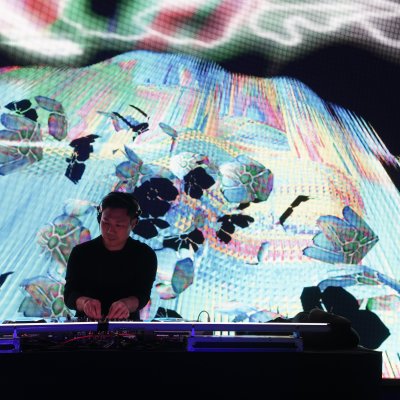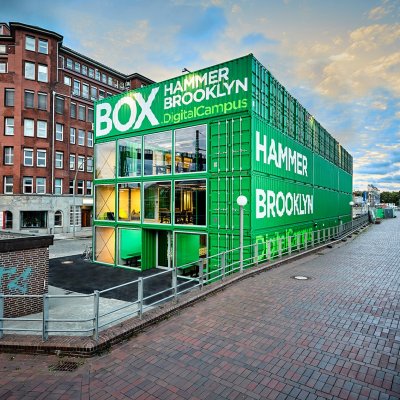She isn’t called Amanda Fucking Palmer for nothing. In your face, intelligent,outspoken and often controversial, the musician, songwriter and performer firstmade her name as the frontperson for Brechtian punk cabaret band Dresden Dolls.
After launching a successful solo career, she achieved notoriety in short order: first for her Kickstarter campaign where she set out to crowdfund her new album by raising $100,000 and ended up with $1.2million, second for then asking local musicians to perform onstage with her for free.These events set in motion The Artof Asking, her TED talk (with more than 7 million views to date) and now her book of the same name. We spoke with the fearless artist and asked her to explain herself.You became enmired in controversy when you asked musician fans to play for free while on tour after raising $1.2million via Kickstarter to record an album.You appeased critics by then paying those musicians. What was it that made you changeyour mind?
I needed to get on with my tour [laughs]. Looking back—and I discuss this a little bit in my book—I wish I'd stuck to my guns. But it seemed to be the easiest way to get everybody's focus back on the work. And remember the context in which this happened: it was the week my album came out—that I had been working on for four years—I was on tour and working everyday.
All people were talking about was this controversy. No one was talking about the performers, the music. And it was heartbreaking to me, because that was flying in the face of what we were all meant to do, including the volunteers. I didn't have the energy to do a world tour, and organize a bunch of musicians, and fight a full-time war with musicians unions. I forgive myself for making the decision to just make it go away. And some of those musicians even then turned around and said, "This is hilarious, we weren't expecting to be paid. We know why you're giving us this money, we're just going to give it charity."
Like so many things that I've done, I think a lot of points got missed [laughs]. Even before the musicians' stuff happened, when I put my album out, people seemed more interested to talk about the money than the music. And that's always distressing to an artist. As exciting as it was that I have this generous fan base and we had all gotten together to do this huge project, the fact that the art seemed like a subsidiary of some company was really upsetting to me. Because it seemed like everyone writing about it had missed the point that the reason the reason the funding existed was to pay for this big, amazing, beautiful thing that I had wanted to create. People were so dazzled by the dollar signs, they didn't bother putting the record on and listening. As the artist whose ultimate goal it was to make a beautiful thing and tour it, that was heartbreaking.But I see that continuing to be true with all these artists who are crowdfunding. Everyone is willing to pay attention to their business savvy, but no one actually wants to flip on the art channel and see what film they're making or what podcast they're doing. Everyone is too busy talking about the commerce.
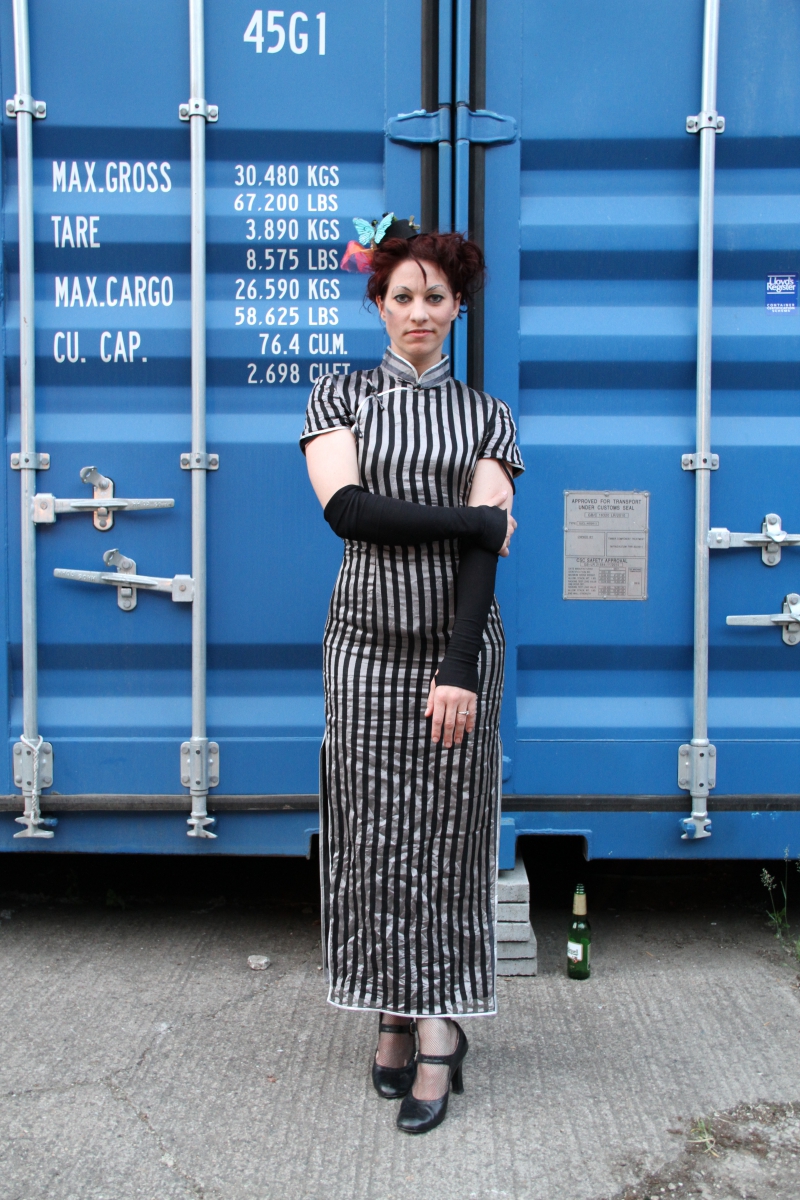 You’ve said in the past that your art is born from a deep desire to be seen.Given that, what’s your take now, after controversy exposed you to a whole new group of people and you were examined in the court of public opinion?
You’ve said in the past that your art is born from a deep desire to be seen.Given that, what’s your take now, after controversy exposed you to a whole new group of people and you were examined in the court of public opinion?[laughs] I think I'd still rather be seen than ignored. Every time I find myself mired in controversy, I learn a great deal about myself, and about culture and society.There's so many things I mosey along taking for granted until I fall into a sinkhole or step on a landmine, and suddenly realize that me and my little bubble of street performing friends are not like most people. And it's humbling. It's sort of like a lot of other things; looking at what's happening politically in America, you sit there reading the paper, going, "Oh my god, is this really the country that we live in? Are there really that many people supporting Donald Trump?" And yet it's important to face that reality, and to understand where you are and why you think the way you do, versus the people over on the other side of the lawn.That's what inspired and informed by TED talk and my book, which were two huge creative undertakings that ate up two years of my life.
But had it not been for all of the controversy, I wouldn't have found myself profoundly grappling with these questions. Why do I think this way? Why do I think this is okay? Why does this seem fair to me and not to others? I was basically forced to really define a philosophy of living that I had never had to define, because I lived in a bubble of people who also all took it for granted. Of course we ask each other to do shit for free. Of course we take this attitude. This is the water we swim in. We don't go around questioning it,we just do it this way. But being forced to define your own philosophy can also be really liberating, because you then stand for something that you didn't realize you stood for.
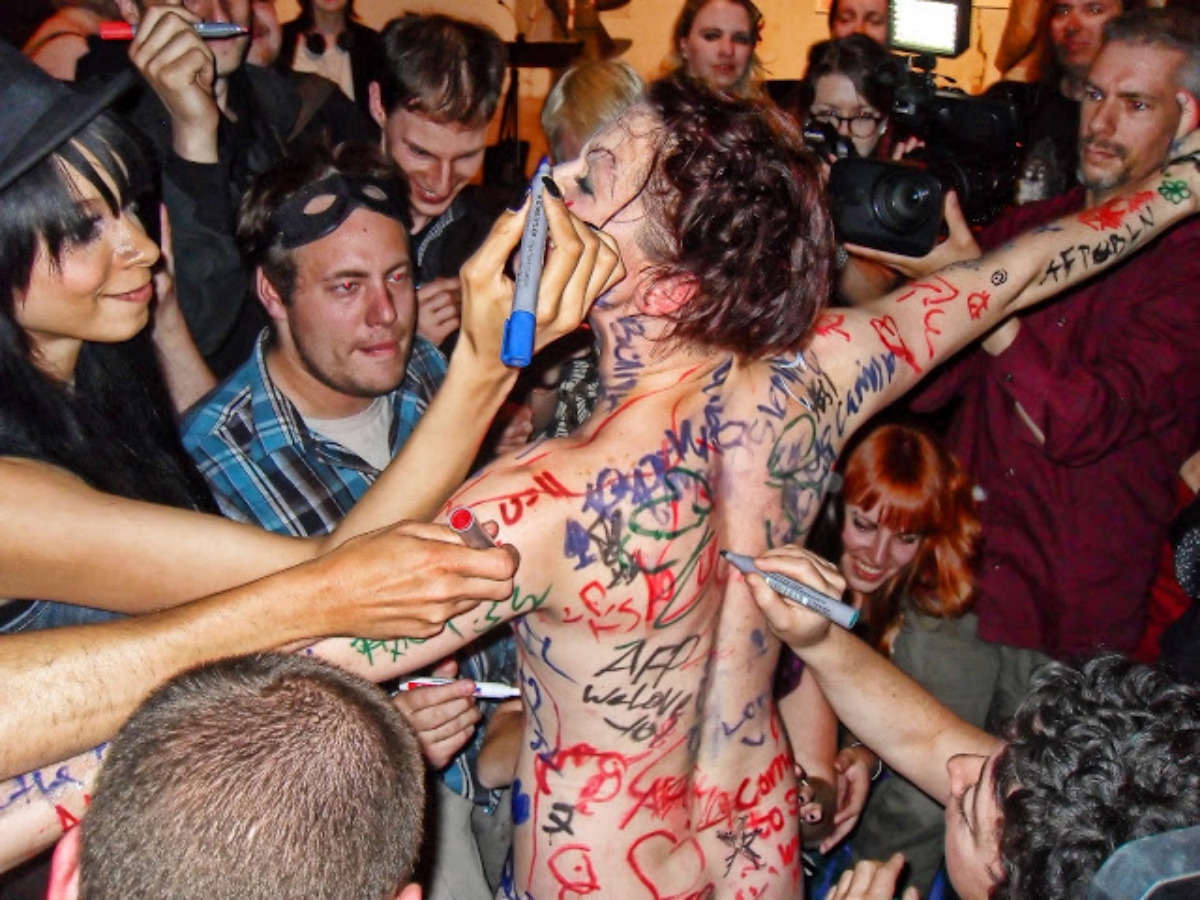 Can you briefly describe that philosophy of “The Art of Asking”?
Can you briefly describe that philosophy of “The Art of Asking”?[laughs] Summarize my entire life's philosophy in a sentence or two? Maybe something like this: as a human being and especially as an artist, approaching our environment and our fellow human beings with trust and abundance and gratitude instead of with suspicion, anger and fear is probably a better way to go. And especially when it comes to art, connection trumps commerce. And generosity and healthy commerce follow connection. If you lead with scarcity and punishment—the way the music industry has been doing for the past ten years—you destroy trust and connection. If you lead with generosity and trust, you foster a healthy relationship and you build an ecosystem where both the artist and the audience can be fulfilled and flourish. And this is something that goes back to the dawn of time. And the way the human community creates, shares and supports art. And I feel really strongly about that.
The more I look around the world and think about what I've been through, what my friends have been through and what the industry is going through, the more I deeply believe that if we approach art from a standpoint that art is just a product and we are running a business and you can simplify it down to the brass tacks the way you can manufacturing and selling a car, you will really fuck up the world. [laughs] It just doesn't work that way.
 Can you forsee an economic system—at least around art—that relies solely on the model that you advocate?
Can you forsee an economic system—at least around art—that relies solely on the model that you advocate?One of the things that I find myself having to explain again and again is that I actually don't advocate for artists to follow a model that I've created. I think the most important thing to keep in mind nowadays—especially because there's so much strife between artists and the community at large, as we stagger around in the dark trying to figure out how to make sense of art and commerce in 2015—is an approach of freedom for each individual artist. To allow them to experiment and take whatever path they choose.
This is what is not happening enough. The artists who are fully committed to getting away from the system and to organic styles and crowdfunding really are in no position to judge the artists who are willing to hawk for Nike and Honda to feed their families. And vice versa.I think we just have to recognize there is a massive spectrum, there are a million paths and a million ways of getting paid for art. And they all have to be considered legitimate. You don't have to support them, but it breaks my heart to see artists criticizing other artists for choosing paths that differ from their own personal choices. I think that's insanity.
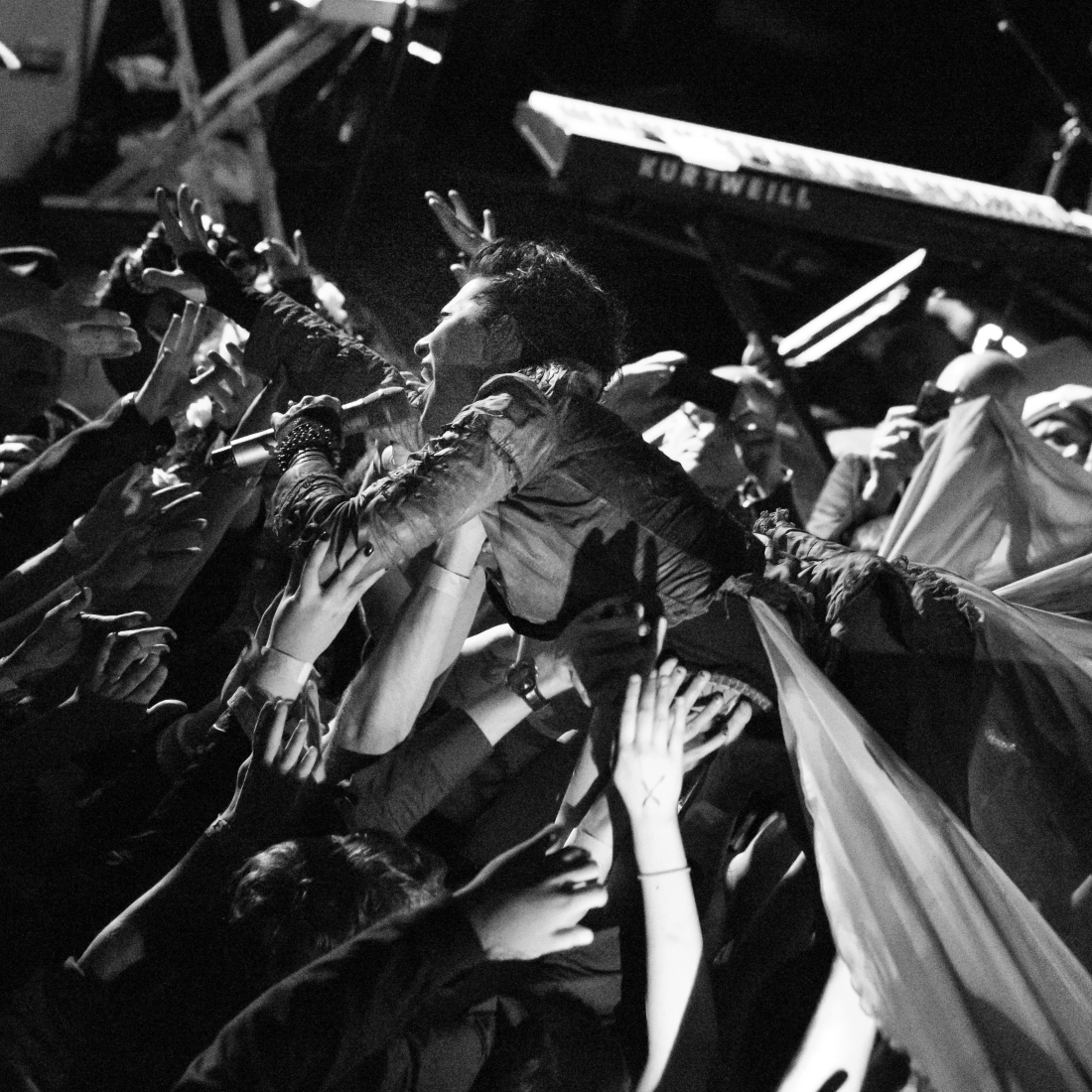 One thing that you're using now, post-Kickstarter, is the Patreon model of crowd-sourced patronage. Can you explain it?
One thing that you're using now, post-Kickstarter, is the Patreon model of crowd-sourced patronage. Can you explain it?Patreon is best described as a Kickstarter that lasts forever [laughs]. It's basically a rolling subscription, where there are different levels at which you can pledge to pay an artist money each time they put out content. Or an artist can set up a monthly bank account and these patrons pledge a dollar or ten dollars, whatever it is, so that this artist has a consistent salary. And from the artist's side, they promise a certain amount of content.
It's an incredibly trusting relationship between these patrons and the artists delivering the content. Whereas Kickstarter is very project-based, Patreon is geared towards creators who are working on a consistent, mundane basis and generally in the digital sphere. So any creator you can think of who puts out regular digital content that's hard to monetize without sticking it behind a paywall—journalists, video-makers, comic book artists, reviewers, musicians,anyone who can deliver digital data to an audience on an ongoing basis—is a great candidate for Patreon.
Kickstarter tends to have a lot of physical components like, "When this project is wrapped, you will get this thing in the mail." Patreon wouldn't really work that way because you have a constant stream of people going in and out the door. Mailing them stuff isn't really the point. They're basically subscribing to your art channel and you are producing the content, and they are patronizing you because they want you to create and they want to support the creation of those things. It's been really successful for certain kinds of artists. Kickstarter is not for everybody.Crowdfunding is not for everybody. And I think Patreon is for an even narrower slice of content creators who are just living, working artists who have digital output,who want to give their fans a venue through which to help them. Patreon is perfect for that.
I'm just experimenting with it. I've been on Patreon since March, and I think I've putout six pieces of content. From ukulele songs to full three-hour webcasts with high production value, to an animated film that went out on YouTube and Vimeo to this bizarre performance that I just did in New York City where I painted myself and stood on a pedestal.
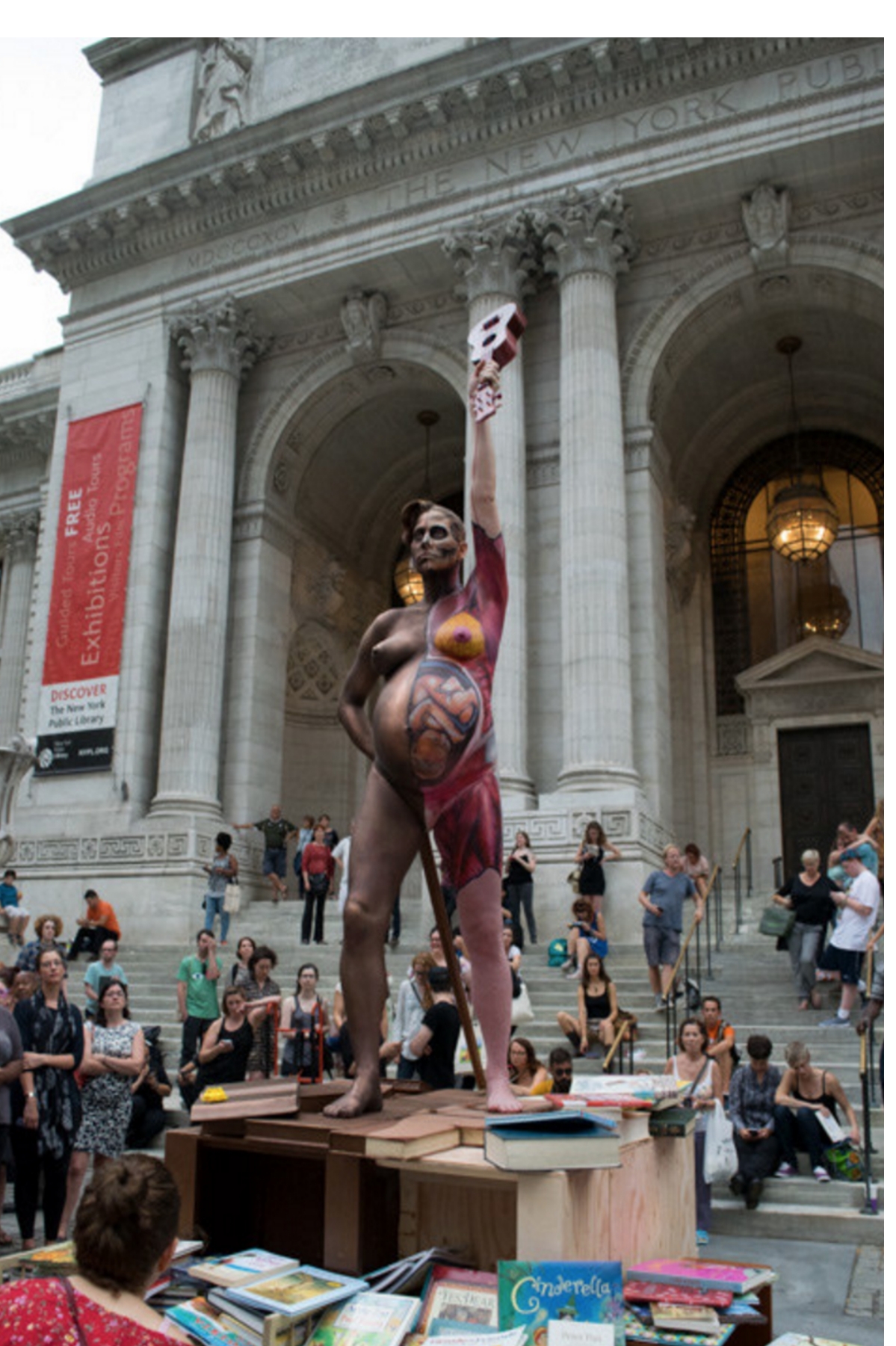 But the project cost $15,000 to put together, because it was likea theatrical production. I hired a crew of 12 people and we worked on it for a month.I love the idea that I now have this budget with which I can do crazy shit. I can make a music video, I can hire a burlesque friend to go off and create a short film. I can work with animators. I can go write a long-form essay in a cabin for a week. And I can turn around and say to my fanbase, "Are you okay with me doing this with your money?" And the resounding answer every single time has been, "Yes. Just do shit. We are so happy to be giving you a dollar to just do shit." [laughs]
But the project cost $15,000 to put together, because it was likea theatrical production. I hired a crew of 12 people and we worked on it for a month.I love the idea that I now have this budget with which I can do crazy shit. I can make a music video, I can hire a burlesque friend to go off and create a short film. I can work with animators. I can go write a long-form essay in a cabin for a week. And I can turn around and say to my fanbase, "Are you okay with me doing this with your money?" And the resounding answer every single time has been, "Yes. Just do shit. We are so happy to be giving you a dollar to just do shit." [laughs]And it's incredibly liberating, because usually if I wanted to do something truly bizarre, like that statue project in New York, I would have paid for it out of my own pocket, and then looked at the other more money-making activities in my life—like touring and merchandizing—to cover my weird-ass art projects that aren't really geared to make money. But with Patreon, I can actually do things like that on a higher budget and not have to write a bizarre grant to the NEA, or jump through any red tape, or keep my budget insanely low because the money's coming out of my own pocket.


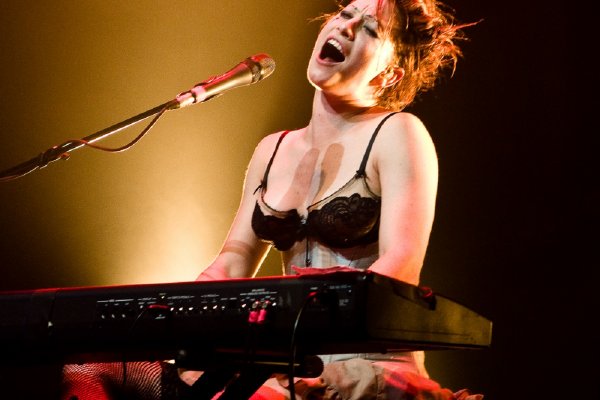
 11111.150x150xC.jpg)





